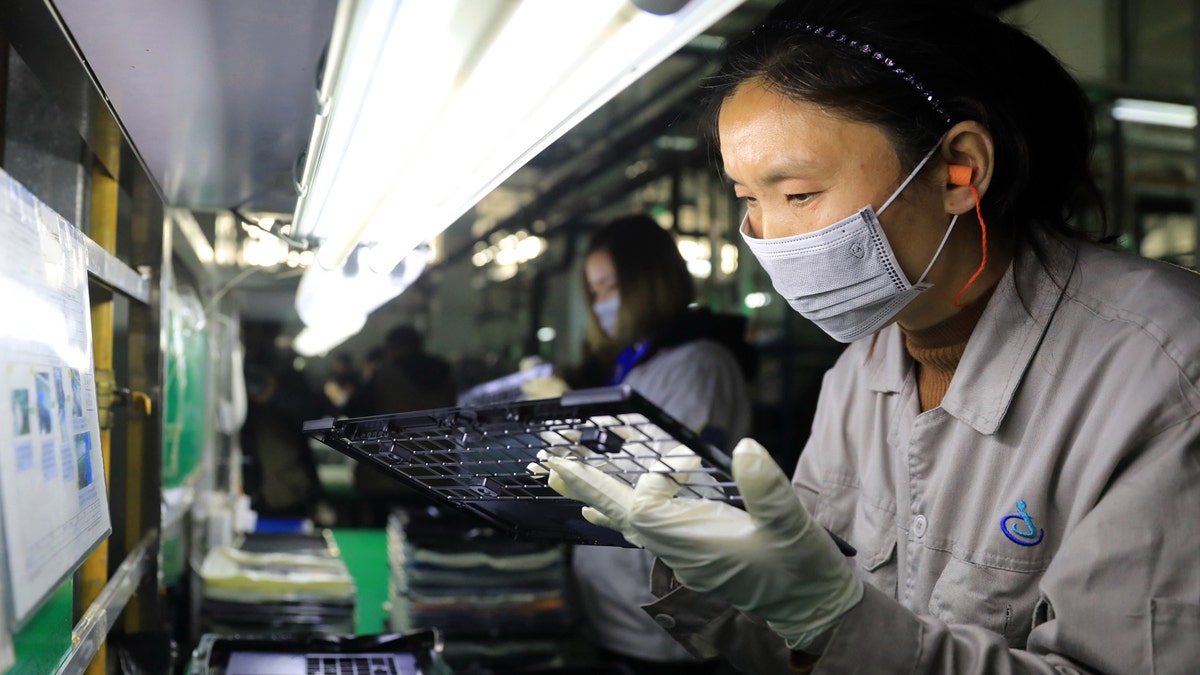
This photo taken on November 19, 2018 shows workers checking laptop parts in a factory in the Hangyong Auto Industrial Park, in Lu'an City, in China's Anhui Province. STR/AFP/Getty Images
Two influential U.S. business groups have issued a report detailing how China is moving ahead with a technology policy set to be a key point of contention in the U.S.-China trade talks that resume next week in Washington.
In a joint report to the U.S. Trade Representative, the U.S. Chamber of Commerce and the American Chamber of Commerce in China say Beijing’s ambitious plan to become a global technology leader is being widely implemented, casting doubt on efforts by Chinese officials to play down its significance.
There is evidence of “a deep, concerted and continuing effort” by provincial officials to pursue the central government’s Made in China 2025 plan, which seeks to make China a leader in electric vehicles, aerospace, robotics and other frontiers of manufacturing, the two business groups say.
WHATSAPP LIMITS USERS TO FIVE TEXT FORWARDS TO BATTLE FAKE NEWS, RUMORS
The report comes as negotiators for the U.S. and China prepare to continue trade talks in Washington Jan. 30.
The chambers wield clout with the White House as representatives of American companies doing business in China, many of whom are reluctant to criticize Beijing publicly.
The business associations also have influence among China’s leaders as longtime advocates of closer U.S.-China business ties. To that audience, their report reinforces a message U.S. business leaders have been trying to convey to Beijing: China can no longer take U.S. business-group support for granted.
The USTR’s investigation into Chinese trade practices last year concluded that Made in China 2025 created an unfair playing field for American companies, including by making their trade secrets vulnerable to Chinese competitors.
OCASIO-CORTEZ DROPS IN ON DONKEY KONG 64 TWITCH STREAM
Under pressure from the U.S., Chinese officials have agreed to redraft the plan. Xin Guobin, vice minister of industry and information technology, conceded in a news briefing last week “the need to improve the policy system.”
But Beijing negotiators also say the U.S. has exaggerated the significance of Made in China. Vice Premier Liu He, Beijing’s top trade envoy to the U.S., has played down the importance of the plan in meetings with U.S. business groups, participants say.
Click here to read more of this story at The Wall Street Journal, where it was first published.








































